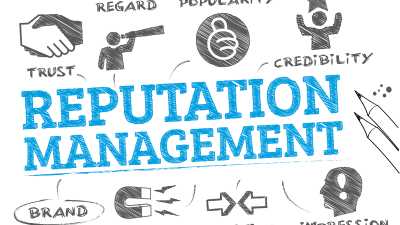4 Tips For Monitoring Your Online Presence
in Reputation Management by Emily Snell

4 Tips For Monitoring Your Online Presence
In today's corporate environment, having an internet presence is practically a requirement. You must be active on the internet if you want to be successful. But merely having social media profiles or updating your blog on a regular basis isn't enough.
Monitoring one's internet presence to control one's reputation is becoming increasingly crucial for organizations and people. There are several additional reasons why you should keep track of your online presence.
Why Should You Keep an Eye on Your Online Presence?
Obviously, the internet is an excellent platform for marketing yourself or expanding your business. However, if you don't monitor your internet presence, you expose yourself to a lot of hostility. For example, if your firm's Yelp page has a small number of reviews and a few of them are critical, it will not reflect well for the future of your organization.
At the end of the day, it's just a good thing to know where you've been referenced on the internet. Whether those mentions are in news sources or on a customer's Twitter account, they will provide you with information on how you are seen and what you can do to enhance your image. It also allows you to communicate directly with consumers, employers, or other businesses with whom you want to conduct business.
- Begin with Google Alerts
Google Alerts is maybe the most significant management tool in your arsenal. You may choose certain keywords, and Google will notify you anytime those terms occur in nearly any online material. So you can keep track of your name, your company's name and anything else to monitor how you're doing. Google Alerts are frequently used to detect material from news sources, social media, review sites, and blogs.
You can use Google Alerts to monitor what others are saying about you on the internet and act on it. Consider posting those positive comments on your own social media or blog. If it's negative, you can always talk to the person who authored it to try to fix it. The nicest thing about Google Alerts is that it is completely free to use.
- Watch Out for Social Media
Indeed, most social media networks allow you to interact with a diverse spectrum of people. Most large sites do a decent job of notifying you when you are referenced in a post if you are tagged in it.
However, you may overlook instances in which you or your company is referenced without a formal tag. As a result, it's always a good idea to research your name or the name of your business to obtain a complete picture of what people have been saying about you. You should also keep track of the hashtags you've used to see how far they've spread.
Keeping track of your official social media presence may appear simple, but it's vital to remember that there are several platforms available, and Google Alerts might not always catch everything.
- Maintain Control of Review Sites
It might be difficult to look at criticism of yourself or your company. Review sites are more common than ever before, and everybody has an opinion. Unfortunately, most individuals who have a favorable experience with your business will not be as enthusiastic as the minority who have a poor experience.
One of the most prominent review sites, Yelp, allows you to claim your company page, offer relevant and accurate information, and reply to any negative or positive reviews put on the page. This allows you to assuage the fears of anyone who has left a poor review while also reducing the impact you would have received if you had not been able to react.
Again, the problem is that there are innumerable review sites, making it a tremendous endeavor to monitor them all on your own. This is especially true if your company operates from various locations.
- Wikipedia
Wikipedia is one of the better reputation management tools, but it's also one that many people overlook. If you value a good reputation, you should keep an eye on your Wikipedia page at all times. Anyone can edit Wikipedia, and a frustrated customer may load your page with negative news pieces while dismissing everything favorable.
What is the most effective technique to monitor Wikipedia? Create an account, add the page to your "watchlist," and set up an email alert. You'll be notified by email if somebody makes changes to the page.
Conclusion
There's little doubt that keeping an eye on your online presence may help you maintain a superb image while avoiding possible catastrophes. If you haven't been keeping an eye on your internet presence, now is the time to start.




